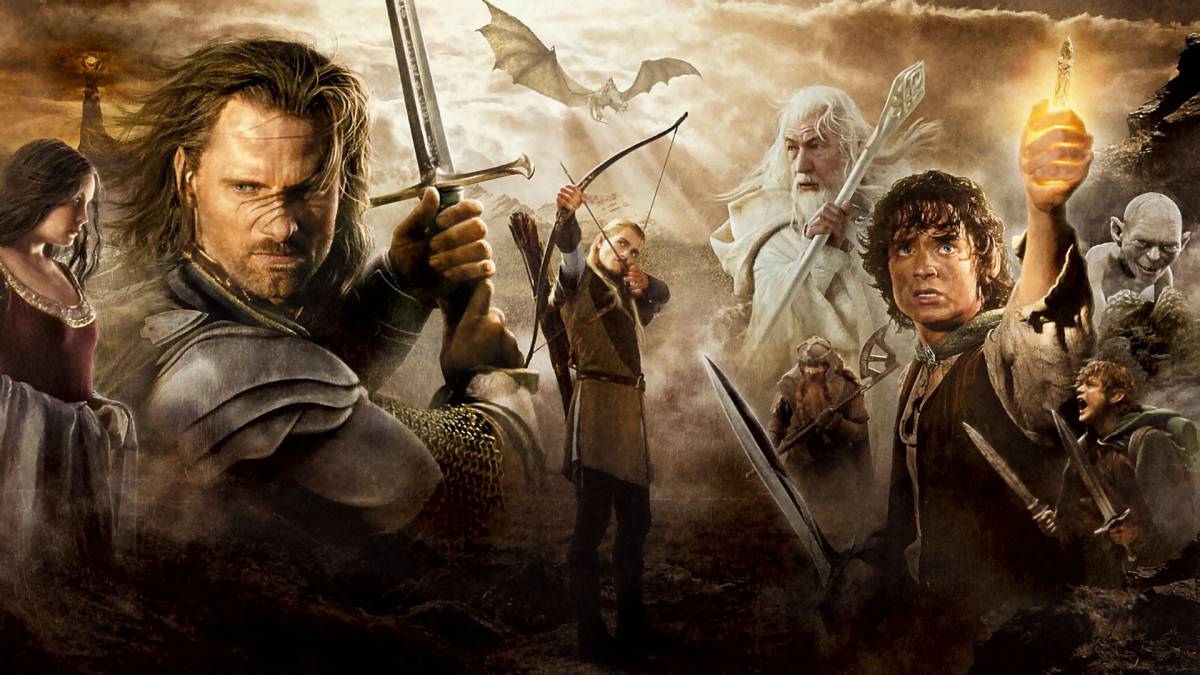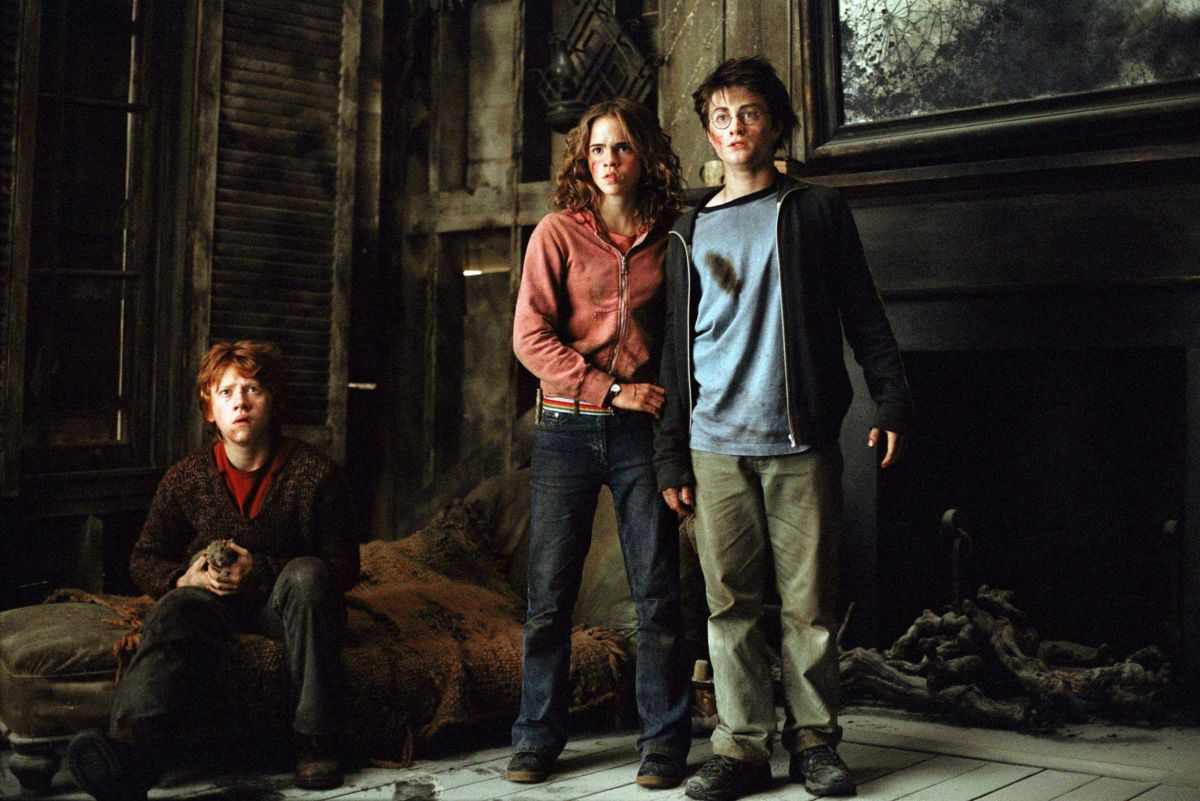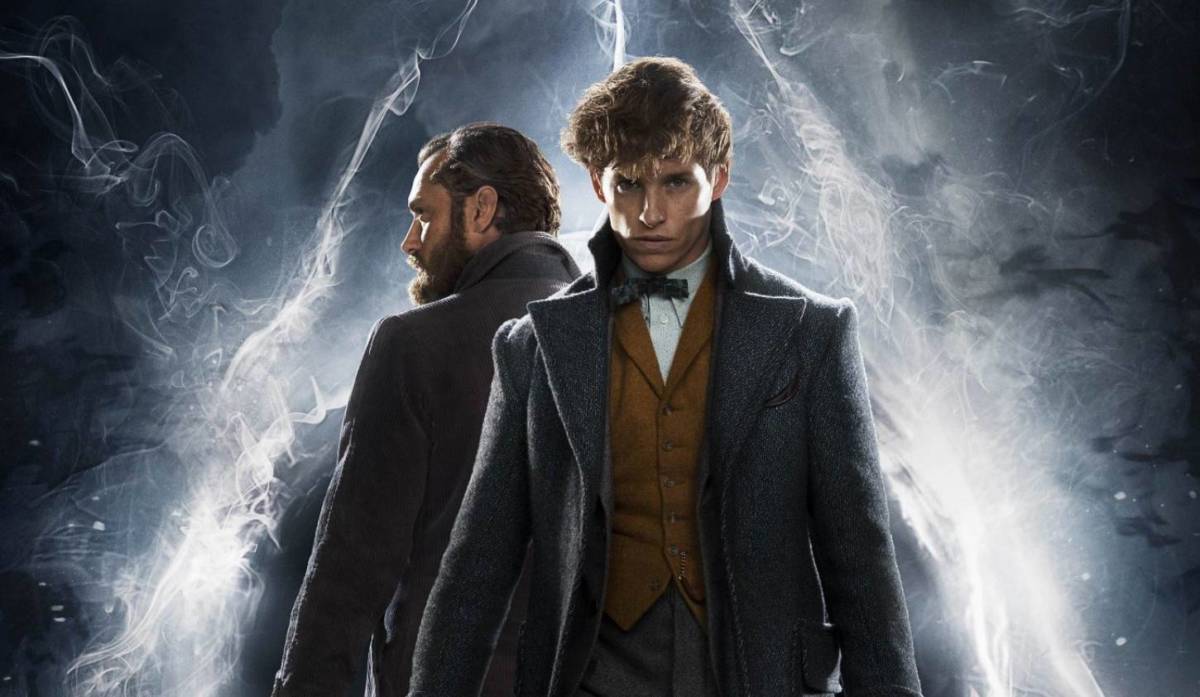hen you think about the movies that define generations, a few specific ones usually pop into mind. In the thirties, people flocked to see Technicolor extravaganzas like Wizard of Oz and Gone With the Wind, turning them into box office smashes (when adjusted for inflation, Gone With the Wind made more money than Avatar). For baby boomers and Gen X, Star Wars showed them the possibilities that cinema had to offer. Millions of millennials grew up with Harry Potter, flocking to see it in droves and turning it into the third-highest grossing film franchise in history. You would assume that films as successful and groundbreaking as these would have heaps of awards to go with their piles of money, and in most cases you would be right, with one notable exception.
While massively successful commercially, the Harry Potter movies never managed to translate their box office magic into awards gold. In total, the films received 12 Oscar nominations entirely in below-the-line categories and won zero awards. Chamber of Secrets and Order of the Phoenix didn’t even manage a single nomination. So far, the only Wizarding World film to win an Oscar is 2016’s Fantastic Beasts, for Colleen Atwood’s exceptional costume design (Crimes of Grindelwald was also not nominated for any Oscars, which no one is complaining about).
When the first film was in development in 2000, director Steven Spielberg was Warner Bros.’ first choice. It’s easy to see why; by that point in his career, Spielberg had basically created the summer blockbuster with Jaws, had several family-friendly films that were box-office hits and won two Oscars for directing. Having his name attached would immediately elevate the project to a certain level of prestige.

Ironically, Spielberg leaving the project was probably one of the best things that could have happened, as he allegedly wanted to combine several books and set the films in America, with CG animation and Haley Joel Osment as the voice of Harry. Yes, you read that correctly. After Spielberg declined the offer, Warner Bros. considered several others before deciding on Chris Columbus, director of the Home Alone films and Mrs. Doubtfire. The studio cited these films specifically as an influence on their decision, saying “…it was important for us to find a director that has an affinity for both children and magic. I can’t think of anyone more suited for that job than Chris [Columbus].”
Their decision paid off. The first film premiered to great reviews from critics and made almost a billion dollars worldwide, becoming the second-highest grossing movie ever at that time. Those two factors are usually great signs for awards prospects; just look at what Titanic pulled off only four years earlier. While Philosopher’s Stone was passed over by the Golden Globes, it scored a Best Picture nomination from the PGA (usually an accurate Oscar bellwether) and seven BAFTA nominations, including Best British Film and Supporting Actor for Robbie Coltrane as Hagrid. Things were looking good for the film’s Oscar prospects, and then nomination day came, and everything went sideways. It did garner three nominations, for art direction, costume design, and original score, but nothing else. How could this have happened? How did one of the best-reviewed, highest-grossing films of the year get no major Oscar noms?
Frankly, I think it never came close, because it was never viewed as an “Oscar movie”. When compared to another popular literary adaptation that made a bunch of money in 2001, Peter Jackson’s Lord of the Rings: The Fellowship of the Ring, we can see why it never made the cut. Jackson’s film landed 13 nominations, the most of any film that night, including Best Picture, Director, Screenplay and Supporting Actor for Ian McKellan. It’s easy to see why; Tolkien’s epic book series had defined modern fantasy literature, and Jackson made headlines for the massive undertaking of filming all three films back-to back. The film had an Oscar-friendly release date in mid-December, and on top of all of that, had some of the best reviews of the year.
In comparison, Harry Potter and the Philosopher’s Stone had a director known entirely for family films and comedies, and was based on a series of novels originally targeted towards children. One of the film’s criticisms was its hyper-faithful adaptation of an overstuffed narrative, so screenplay and direction were out, and outside of possibly Robbie Coltrane as Hagrid or Richard Harris as Dumbledore, it didn’t have much of a shot at an acting nomination. Perhaps Lord of the Rings took all of the fantasy air out of the room, or the acting branch wasn’t willing to nominate two elderly wizards with long beards in the acting categories that year. While very-well reviewed, it didn’t come close to the level of acclaim of Jackson’s film. These factors, combined with the awards’ historical aversion to fantasy, led to the first film in the franchise being snubbed right out of the gate.
Now you might be saying, “Yeah okay, that all makes sense for the first movie, but what about the rest of them?” After all, the series had consistently great reviews and stellar box office numbers. Why did none of them do better than the first film? I would argue that even as the series matured and improved, from its filmmaking to its lead performances, it was never able to break its perception as a series of “family films.” Even with filmmakers like Alfonso Cuaron behind the camera, (could you imagine Cuaron directing a franchise film in a post-Roma world?) the series was never able to capture the gravitas that led to the awards success of Lord of the Rings or other genre fare like Mad Max: Fury Road and Black Panther.
It’s hard to fathom that a franchise with a cast as stacked as this one failed to produce a single acting nomination, but unfortunately that’s the world that we live in. One glance at the cast list reads as the cream of the crop of British acting; Gary Oldman, Maggie Smith, Richard Harris, Julie Walters and Jim Broadbent are just some of the Oscar nominees/winners that make up the excellent ensemble. But unfortunately when it comes to fantasy films, an acting nomination is an even longer shot than one for Best Picture. Take Return of the King, which won all 11 Oscars for which it was nominated without a single nom in an acting category, despite many worthy candidates. It seems that the Oscars would rather give out nominations for doing serviceable impressions of historical figures or pretending to die of an illness for two hours than award moments like this.
Even though the HP series had gone almost a decade without any Oscar love, some awards prognosticators held out hope that like the last LOTR film, the Academy was simply waiting for the last film in the series to heap awards onto, effectively recognizing its decade-long artistic achievement. It certainly helped that it was the best-reviewed film in the franchise and broke several box office records. Many thought that Deathly Hallows Part 2 could snag the 9th or 10th slot in an expanded Best Picture category, or that the never-nominated Alan Rickman could grab a spot in Best Supporting Actor as an acknowledgement of his remarkable performance both in that film and across the series.
Unfortunately, it just wasn’t meant to be. While Rickman’s nomination was a longer shot, (if he couldn’t get one for Die Hard and Sense and Sensibility, this one wasn’t happening), some of its other snubs were more surprising. The Battle of Hogwarts alone should’ve been enough to push the film into the sound categories, and it would have been a good opportunity to recognize years of Steve Kloves’ adaptations in Adapted Screenplay. Due to the switch to a preferential ballot, (which requires a film to receive a certain percentage of first-place votes to get a Best Picture nom), it couldn’t break through in that category, and yet, Stephen “Oscar Bait” Daldry’s 9/11 tearjerker Extremely Loud and Incredibly Close did. This movie, with those reviews, is in the history books as a Best Picture nominee. I’ll just let that one speak for itself.
As sad as it may seem, we will probably never see a Wizarding World film nominated in a major category at the Oscars. The Fantastic Beasts films, while commercially successful, have led to a general turning of critical opinion against the series. The other main factor barring the series from Oscar success is the Academy’s bias against populist entertainment. Outside of a few notable exceptions, blockbuster films rarely break into the major categories, and even if they do, they almost never win. Nine times out of ten, the Academy will pick the smaller, low-budgeted adult-oriented drama over the popcorn spectacle that most moviegoers have actually seen. We’ve seen it multiple times over the past decade alone; The Hurt Locker vs Avatar, Spotlight vs The Revenant, Moonlight vs La La Land. Popular films with audience recognition and box office success rarely are able to stick the landing on Oscar night.
Listen, I’m not trying to argue that every summer blockbuster should be considered to be in the same echelon as films like Lady Bird and The Favourite. While I wish that The Force Awakens could’ve been the first Star Wars movie since the original to get a Best Picture nom, I’m not going to complain when Spider-Man: Far From Home doesn’t get an Adapted Screenplay nom at year’s end. However, I do think that the Academy needs to expand their idea of what defines an “Oscar movie”. It’s silly and reductive to think that a horror movie can’t be as profound as a costume drama, or that an excellent comedic performance isn’t as awards-worthy as a dramatic one.
Thankfully, we’ve started to see changes in this regard, from Get Out’s success to Logan’s screenplay nomination to The Shape of Water’s Best Picture win. But we’ve still got a way to go when it comes to recognizing popular movies like Harry Potter at the Oscars, and no, this is not it. We can only hope that the Academy’s failure to honor one of the best movie franchises ever will lead to change, and that more popular films will get the awards recognition they deserve. Who knows, maybe Quidditch Through The Ages will be the Best Picture nominee the Wizarding World has been waiting for.
MORE HP:
– Revisiting Harry Potter and the Prisoner of Azkaban, 20 Years Later
– Harry Potter and the Evolution of Gaming From 2001-2011
– 6 Reasons Why Harry Potter is the Best Story of a Generation
Some of the coverage you find on Cultured Vultures contains affiliate links, which provide us with small commissions based on purchases made from visiting our site. We cover gaming news, movie reviews, wrestling and much more.






